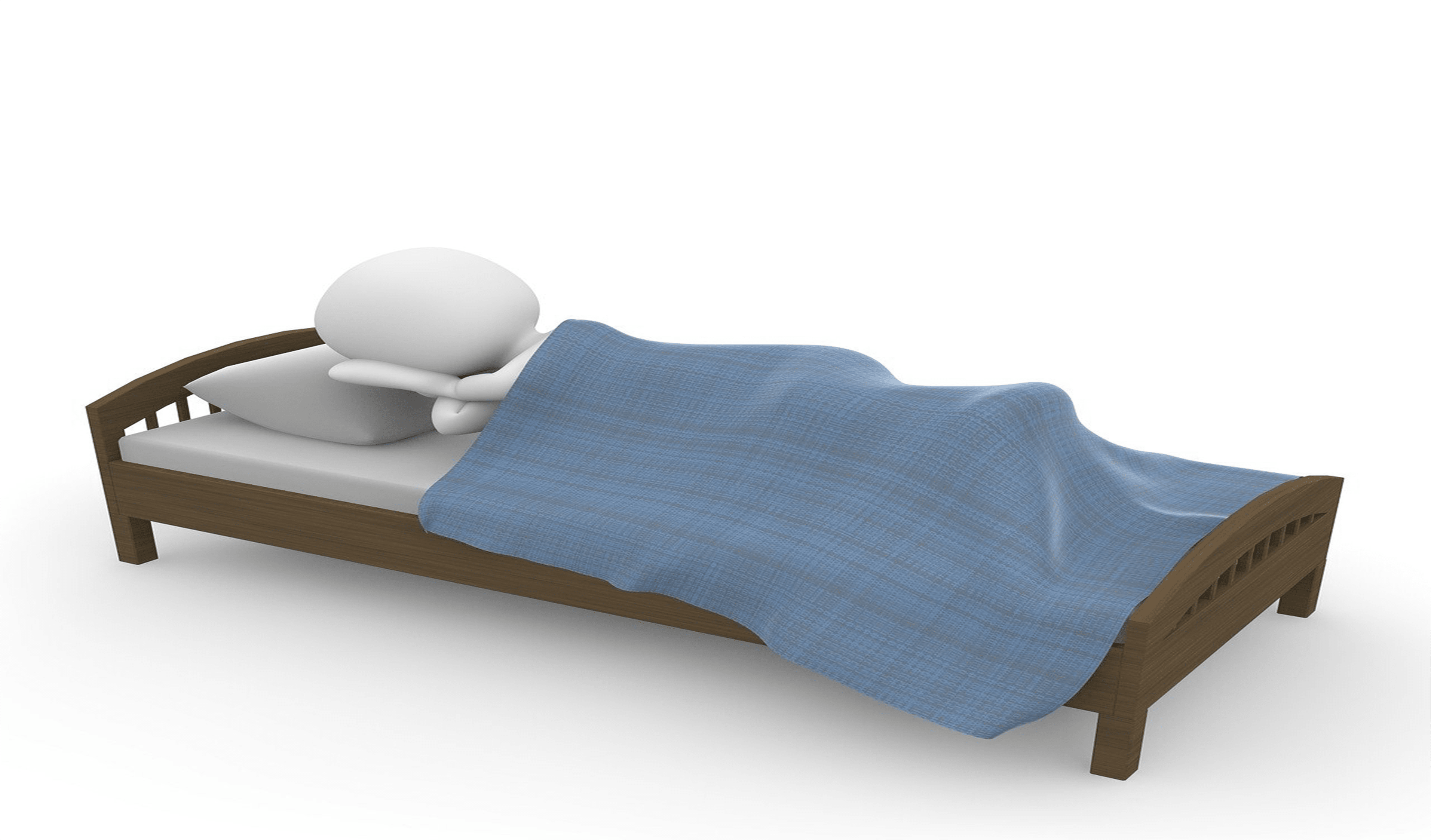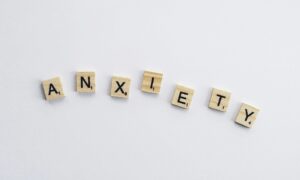Sleep is often regarded as one of the pillars of physical well-being, but its importance for mental health is equally crucial. A consistent, restful night’s sleep serves as a foundation for emotional resilience, cognitive function, and overall mental well-being. Without adequate sleep, our ability to manage stress, process emotions, and think clearly is significantly impaired. In this article, we’ll explore the deep connection between sleep and mental health, why it matters, and how to improve sleep habits for a healthier mind.
1. The Link Between Sleep and Mental Health
Sleep and mental health share a bidirectional relationship. Poor sleep can trigger or exacerbate mental health issues, while mental health disorders can disrupt sleep patterns. Conditions like anxiety, depression, and bipolar disorder are closely associated with sleep problems, such as insomnia or hypersomnia (excessive sleep).
- Sleep Affects Emotional Regulation: During sleep, the brain processes and consolidates emotions, helping us manage emotional responses in daily life. Lack of sleep impairs this ability, making us more irritable, reactive, and prone to mood swings.
- Cognitive Function and Clarity: Sleep is essential for cognitive functions such as attention, memory, and decision-making. When sleep-deprived, it’s harder to concentrate, solve problems, and think creatively, which can contribute to feelings of frustration and anxiety.
- Mental Health Disorders and Sleep: A range of mental health disorders, including anxiety, depression, post-traumatic stress disorder (PTSD), and schizophrenia, often include disrupted sleep patterns as part of their symptoms. Addressing sleep issues can significantly improve outcomes in managing these conditions.
2. The Role of Sleep in Brain Function
Sleep is an active process during which the brain undergoes restoration and repair. Key functions during sleep include memory consolidation, emotional processing, and the removal of metabolic waste.
- Memory Consolidation: During the REM (Rapid Eye Movement) stage of sleep, the brain consolidates memories and information learned throughout the day. This process is essential for learning and retaining new information.
- Emotional Processing: The brain works to process emotions during sleep, especially during REM sleep. By processing complex emotions, dreams, and memories, sleep helps regulate mood and emotional stability.
- Brain Detoxification: During deep sleep, the brain’s glymphatic system clears out waste products and toxins that accumulate during wakefulness. This “cleaning” process is crucial for maintaining cognitive health and reducing the risk of neurodegenerative diseases.
3. Impact of Sleep Deprivation on Mental Health
When the body and brain don’t get enough sleep, the consequences are immediate and far-reaching. Chronic sleep deprivation negatively impacts mental and emotional health in a variety of ways:
- Increased Stress and Anxiety: Lack of sleep heightens the production of stress hormones like cortisol, which can lead to increased anxiety. Studies show that sleep-deprived individuals are more likely to experience heightened anxiety and stress, even in low-stress situations.
- Depression: Insomnia, or difficulty falling and staying asleep, is one of the most common symptoms of depression. Sleep deprivation can also trigger depressive episodes, contributing to a vicious cycle where poor sleep worsens depression, and depression worsens sleep.
- Memory and Cognitive Impairment: Sleep-deprived individuals have difficulty forming and retaining memories, problem-solving, and focusing on tasks. This can lead to frustration and contribute to feelings of incompetence or self-doubt, which further affect mental health.
- Poor Emotional Regulation: Sleep deprivation interferes with the brain’s ability to process emotions, which can lead to exaggerated emotional reactions, mood swings, and irritability. This lack of control over emotions can also strain personal relationships.
- Increased Risk of Psychiatric Disorders: Chronic sleep deprivation has been linked to an increased risk of developing psychiatric conditions such as anxiety disorders, depression, and even psychosis. It can exacerbate symptoms in those who already suffer from mental health conditions.
4. How Mental Health Disorders Disrupt Sleep
Mental health conditions often create a feedback loop of sleep problems. Here’s how some of the most common mental health disorders affect sleep patterns:
- Anxiety: People with anxiety often struggle with insomnia due to excessive worry and racing thoughts. They may experience difficulty falling asleep or staying asleep, leading to chronic fatigue.
- Depression: Individuals with depression may experience insomnia or hypersomnia (excessive sleeping). In either case, the quality of sleep is often poor, leaving them feeling tired and sluggish even after a full night’s rest.
- Bipolar Disorder: Sleep disturbances are common in individuals with bipolar disorder. During manic episodes, they may sleep very little, while during depressive episodes, they may sleep excessively.
- Post-Traumatic Stress Disorder (PTSD): People with PTSD often experience nightmares or flashbacks that disrupt their sleep. The hyperarousal associated with PTSD can also make it difficult to fall asleep or stay asleep.
5. Benefits of Healthy Sleep for Mental Health
Getting adequate, restful sleep on a regular basis can have a transformative effect on mental health. Here are some of the benefits:
- Improved Mood and Emotional Balance: Quality sleep enhances your ability to regulate emotions, reducing irritability and mood swings. It also lowers stress levels, making you more resilient to daily challenges.
- Better Cognitive Function: With proper sleep, the brain’s cognitive functions, such as memory, attention, and problem-solving skills, are enhanced. This leads to clearer thinking and better decision-making abilities.
- Lower Risk of Mental Health Disorders: Adequate sleep is protective against the development of mental health disorders. Regular, high-quality sleep helps manage stress, reduce anxiety, and lessen the risk of depression.
- Enhanced Resilience to Stress: Sleep improves your ability to cope with stress. By recharging both body and mind, a good night’s sleep allows you to approach problems more calmly and rationally.
6. Tips for Improving Sleep and Mental Health
Making small lifestyle changes can greatly improve both sleep quality and mental health. Here are some strategies to help you sleep better:
- Establish a Sleep Routine: Going to bed and waking up at the same time every day helps regulate your body’s internal clock. A consistent sleep schedule makes it easier to fall asleep and wake up feeling refreshed.
- Create a Relaxing Bedtime Ritual: Engage in calming activities before bed, such as reading, listening to soothing music, or practicing mindfulness meditation. This helps signal to your brain that it’s time to wind down.
- Limit Screen Time Before Bed: Exposure to blue light from phones, tablets, and computers can interfere with your sleep by suppressing melatonin production. Try to avoid screens for at least an hour before bedtime.
- Exercise Regularly: Physical activity can promote better sleep, especially when done earlier in the day. Exercise reduces stress hormones and helps tire your body, making it easier to fall asleep.
- Limit Caffeine and Alcohol: Both caffeine and alcohol can disrupt sleep. Caffeine, a stimulant, can make it harder to fall asleep, while alcohol can interfere with the quality of your sleep by reducing REM sleep.
- Manage Stress and Anxiety: Practice relaxation techniques such as deep breathing, meditation, or yoga to help calm your mind before bed. Managing stress during the day can also prevent it from keeping you awake at night.
7. When to Seek Help
If you’ve tried improving your sleep habits but still struggle with insomnia or poor sleep quality, it may be time to seek professional help. Chronic sleep problems may be a sign of a deeper mental health issue that requires treatment.
Consult a Doctor or Therapist If You:
- Experience frequent insomnia or sleep disturbances
- Feel excessively tired during the day despite sleeping enough
- Struggle with mood swings, anxiety, or depression that disrupt your sleep
- Suffer from nightmares or frequent waking up during the night
8. Conclusion
Sleep is not just a time for rest; it’s essential for maintaining mental health. By prioritizing good sleep habits and recognizing the importance of rest, you can improve emotional regulation, cognitive function, and resilience to stress. Whether you’re dealing with anxiety, depression, or everyday stressors, quality sleep is a vital part of the solution for achieving better mental well-being.
Let your imagination run free, Immerse yourself in a world of colors and beauty. Remember, your mental well-being is priceless.
Team coloringbookvibe.com

Coloring Book Vibe is a dedicated publisher of captivating coloring books, along with instructional books on drawing and coloring techniques. We are deeply passionate about the art of coloring, ensuring our designs are always intricate, beautiful, unique, and often infused with a touch of humor. We highly value our customers and always welcome feedback and suggestions. Our collection features an incredible array of coloring books across various genres, including Fantasy, Animals, Mandalas, Doodle Patterns, Floral, Landscapes, Country Scenes, and more.



